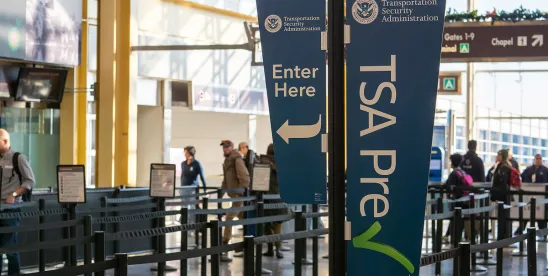U.S. Customs and Border Protection (CBP) and the Transportation Security Administration (TSA), working with partner airlines and foreign authorities, are piloting changes that let certain arriving international passengers connect in the United States without reclaiming and re-checking checked baggage. The initiative began in April 2025 on American Airlines’ Sydney to Los Angeles service and uses CBP’s International Remote Baggage Screening (IRBS), under which x-ray images of checked bags are captured overseas and transmitted securely to CBP for remote review, often while the flight is en route. When CBP clears a bag, it is transferred directly to the onward flight in the United States, eliminating the baggage claim and re-check step unless CBP refers the passenger or bag for inspection.
Expansion to Dallas and Atlanta
In July 2025, American introduced One Stop Security (OSS) at Dallas–Fort Worth for customers arriving from London Heathrow. Under this DFW pilot, eligible customers clear U.S. Customs near the arrival gate and then proceed directly to their connecting flight without reclaiming or re-checking checked baggage and without passing through a TSA checkpoint. American has said this setup may cut connection times by more than half.
By mid-August 2025, Delta announced that customers connecting at Atlanta from London Heathrow and Seoul Incheon no longer need to reclaim and re-check bags. For Heathrow to Atlanta specifically, Delta also stated that customers on select flights who are enrolled in Global Entry or who use the Mobile Passport Control app may bypass redundant TSA screening and go straight to the gate, with the carrier indicating that this security bypass will roll out to all LHR–ATL flights in the following weeks. Delta has said the baggage-handling change typically saves around 25 minutes, with up to 45 minutes saved when the TSA rescreening bypass applies.
Confirmation of Seoul Participation
CBP separately confirmed the expansion of IRBS to the Seoul Incheon–Atlanta route in an August 2025 national media release. CBP explains that x-ray images of checked baggage for Atlanta-bound passengers are transmitted so CBP can remotely screen bags during the flight, enhancing security, expediting processing, and eliminating baggage re-check on arrival unless CBP makes a referral. The same release notes that the program was first announced in April 2025 for Sydney–Los Angeles. Neither CBP nor Delta has announced a TSA rescreening waiver for Seoul–Atlanta flights.
Travel Scenario
Consider a hypothetical traveler, Priya, a U.K.-based project manager connecting from London to Phoenix through Dallas. Under the old system, she would have landed at DFW, cleared passport control, collected her suitcase, re-checked it, and then waited in line at a TSA checkpoint before heading to her gate, a process that often consumed 60 to 90 minutes. Under the new pilot, Priya clears CBP quickly near her arrival gate, skips baggage claim, and heads directly to her connection. Her total transfer time is reduced by nearly half, turning the layover into a more predictable and efficient experience.
On Delta’s Heathrow to Atlanta flights, the change is similar in terms of baggage handling, but Priya can only bypass TSA re-screening if she is a Global Entry member or uses CBP’s Mobile Passport Control app. Without those programs, she may still skip baggage claim but must budget extra time for TSA. On Seoul to Atlanta flights, another traveler, Daniel, now avoids baggage claim and re-check when connecting to a U.S. domestic city. While he still expects to clear TSA, his overall transit is smoother and faster, and the risk of a missed connection due to baggage delays is greatly reduced. On Sydney to Los Angeles flights, a third traveler, Mei, now proceeds directly from her international arrival to her domestic gate without baggage re-check, saving time when connecting onward to Chicago.
Why This Matters for Employers and Frequent Travelers
By removing baggage re-check and, in some cases, redundant security, the program may reduce connection times, increase reliability during peak travel seasons, and minimize missed connections for travelers. The initial launch in Sydney followed by the expansion to Heathrow and Incheon routes shows the growing scope of this effort. Travelers who want to benefit from the program should book eligible flights and, where applicable, enroll in Global Entry or use the Mobile Passport Control app. While this remains a pilot subject to change and CBP referrals, it could reshape how international connections are handled at U.S. airports.



 />i
/>i
